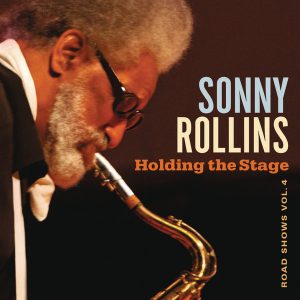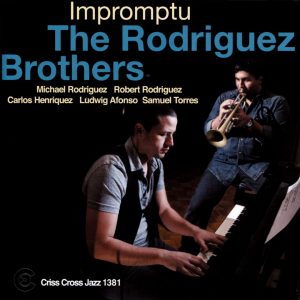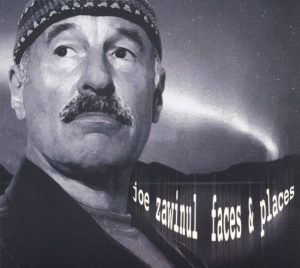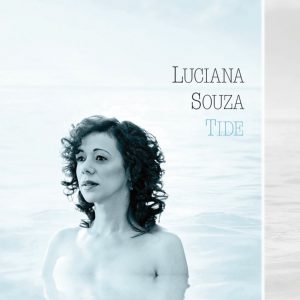Charles Lloyd
Released September 17, 2010
Jazzwise Top 10 Releases of 2010
JazzTimes Top 10 Albums of 2010
Spotify: https://open.spotify.com/album/2S2e9KAsq88kaNMO5xqDV5?si=PXKTXj1-RmimBKg7K4sLmA
About:
“Charles is playing really beautiful,” Ornette Coleman says, in the documentary film “The Monk and the Mermaid”. “He’s expressing the qualities of what we experience. Trying to make a contribution to the quality of life, to do with knowledge.” The knowledge, experience, or wisdom conveyed through Lloyd’s tender saxophone soliloquies has drawn great musicians to him over the decades, and contributed to a reputation as one of the most insightful band leaders in all of jazz. Those qualities are reflected once more in “Mirror”, which is perhaps as succinct a portrait of Charles Lloyd’s music as can be embraced by a single disc.
“Charles approaches the music with such openness”, pianist Jason Moran said recently. “I like playing with leaders who let you bring what you’ve got to the table, and interpret the music however you’d like. Charles is a great promoter of free-thinking music, and letting it develop on the spot.”
“Mirror” is the first studio album by the Lloyd-Moran-Rogers-Harland unit and it features beautiful, transformed versions of favourites including both Lloyd originals and tunes Charles has made his own over the years. There is a pair of Thelonious Monk tunes, “Ruby, My Dear” and “Monk’s Mood”, as well as hymns and traditionals including “Go Down Moses”, “Lift Every Voice And Sing”, and “The Water Is Wide”. Lloyd covers Brian Wilson’s’ “Caroline, No” (the saxophonist guested on several Beach Boys albums in the 70s, including the classic “Surf’s Up”), and plays an achingly lovely version of the standard “I Fall In Love Too Easily”. Lloyd originals include “Desolation Sound”, “Mirror”, “Tagi” (which includes a Bhagavad Gita-inspired spoken-word meditation by Lloyd) and “Being and Becoming”.
There is plenty of Lloyd’s graceful, mellifluous and poetic tenor sax: We also get to hear some of his rarely-showcased alto saxophone, the instrument that Billy Higgins called Charles’s “secret weapon”.
Many critics have opined that Lloyd’s “New Quartet”, with Jason Moran, Reuben Rogers and Eric Harland may be the best of all his groups. The quartet’s previous release in this line-up, the live-recorded “Rabo de Nube”, met with across-the-board approval and was voted #1 album of the year in both the Critics and Readers Polls of Jazz Times.
The band plays superbly. Interaction between Jason Moran and the elastic rhythm section of Harland and Rogers is agile and alert in every moment. None of these three players, completely in tune with Lloyd’s way of working, was born when Charles had his idiomatic breakthrough with “Forest Flower” in 1967. Moran recalls that his father encouraged him to listen to “Forest Flower” when he was just starting to check out jazz, and the album was part of the soundtrack of his childhood.
Track Listing:
1. I Fall in Love Too Easily (Sammy Cahn / Jule Styne) 5:00
2. Go Down Moses (Traditional) 5:59
3. Desolation Sound (Charles Lloyd) 7:03
4. La Llorona (Traditional) 5:35
5. Caroline, No (Tony Asher / Brian Wilson) 4:02
6. Monk’s Mood (Thelonious Monk) 5:01
7. Mirror (Charles Lloyd) 6:42
8. Ruby, My Dear (Thelonious Monk) 5:25
9. The Water Is Wide (Traditional) 7:19
10. Lift Every Voice and Sing (James Weldon Johnson / John R. Johnson) 4:29
11. Being and Becoming (Charles Lloyd) 7:02
12. Tagi (Charles Lloyd) 9:17
Personnel:
Charles Lloyd: tenor saxophone, alto saxophone, voice
Jason Moran: piano
Reuben Rogers: double-bass
Eric Harland: drums, voice
Recorded December 2009, at Santa Barbara Sound Design
Produced by Charles Lloyd and Dorothy Darr
Executive-Producer: Manfred Eicher
Engineer: Dominic Camardella
Engineer (Assistant): Adam Camardella
Mastered by Bernie Grundman
Photography by Dorothy Darr
Review:
Deeply meditative and tender the Charles Lloyd Quartet showed an unquenchable thirst for striving towards an ideal on Mirror, as Lloyd himself puts it, to face up to personal inadequacies and reach a spiritual space in a spirit of humility – it’s about “falling down and getting up,” he has said. A sentiment we surely all can applaud.
Mirror is imbued with a lot of love, containing many of the distilled musical and life experiences of Charles Lloyd, one of the great figures of jazz who since the 1960s, has looked to the sky and within himself to allow his music to connect with people the world over.
Lloyd’s quartet, pianist Jason Moran, bassist Reuben Rogers and drummer Eric Harland, is a formidable and powerful improvising force live, its latent vigour is certainly captured in concert on Rabo de Nube released to celebrate Lloyd’s 70th birthday two years ago.
But on this new album in a coup de musique the quartet shows to awesome effect what it can also do in the studio in a more thoughtful vein. The variety of material on Mirror is indicated by the range of Lloyd originals, ‘Desolation Sound’ and the title track, plus reinterpretations of original tunes from the Water Is Wide album as well as two Monk pieces, three gospel-infused tunes and the Brian Wilson song ‘Caroline No’ from the Beach Boys stone classic Pet Sounds also recall the time when Lloyd featured on the Beach Boys album Surf’s Up.
Lloyd also tellingly contributes a spoken word meditation to ‘Tagi’, inspired by sacred Hindu scripture, the Bhagavad Gita, and the idea of music as a never ending stream and a force of nature. It was ‘Tagi’ that transformed the CLQ’s recent concert at the London Jazz Festival into a special occasion. With the aura of Coltrane, spirituals and deeply felt jazz standards, Mirror is a stunning achievement. Its power is in its simplicity, and its capacity to move, something that made a direct impact on so many Jazzwise writers this year. We’ll all be listening to this album for years to come.
Stephen Graham (Jazzwise)





